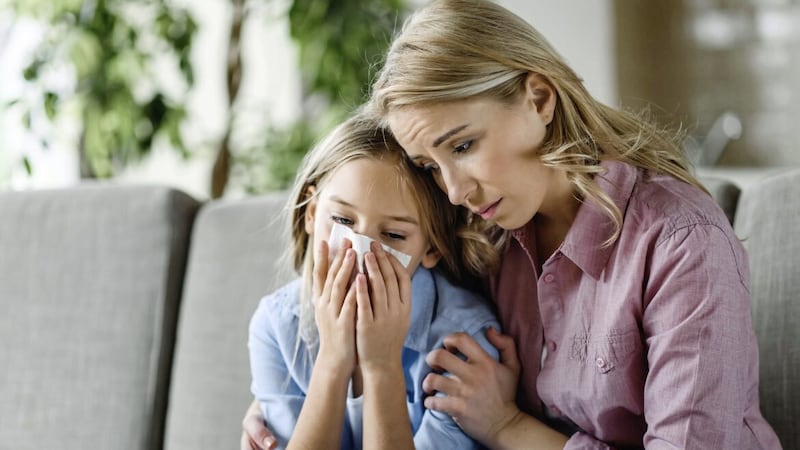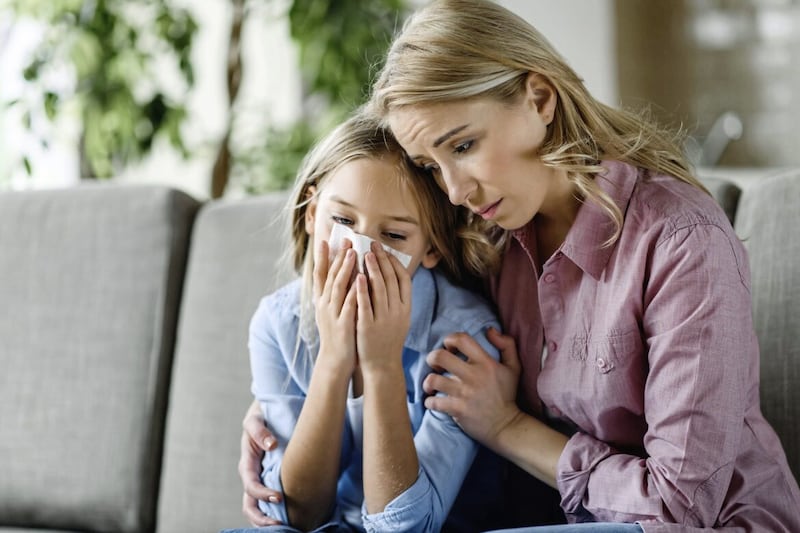ALONG with the excitement and anticipation of a new school year, there's also a little anxiety around the one thing that can put a spanner in the works – a cold.
As MyHealthChecked's Dr Dave Nichols puts it: "The return to school following the summer holidays often coincides with a rise in a number of respiratory illnesses, including the common cold."
Common symptoms include a cough, sore throat, nasal irritation, nasal discharge (rhinorrhoea), a fever or generalised malaise, explains Nichols.
"While the common cold can affect all population groups, the National Institute for Health and Care Excellence report this to be far higher amongst children, who experience an average of five to eight colds per year."
Nichols continues: "Adults who have regular contact with children are also seen to have colds more frequently."
He says children are especially important in the transmission, acting as reservoirs for the infection as they have fewer antibodies and a more immature immune system, making them more susceptible to the common cold.
"Direct contact with the skin or hand contact with an infected object are key ways the virus is transmitted," notes Nichols.

Read more:
- How to avoid a cold when everyone you know has one
- How can parents and children battle back-to-school anxiety?
"Which explains why numbers seen amongst children are higher, as they are more likely to have close contact with each other in nursery and school."
While there is no cure for the common cold, he says prevention remains crucial in order to protect ourselves from illness.
Here are some top tips to reduce the chances of catching a cold...
ADOPT GOOD HYGIENE MEASURES

Basic good hygiene measures are an important way of reducing the transmission of viruses, says Nichols.
Wash hands frequently with warm soap and water if you (or the kids) have symptoms, or have come into close contact with someone who has symptoms. He says avoid sharing items within households, such as towels, can also help.
GET INTO A PHYSICAL EXERCISE ROUTINE

Ensuring regular physical exercise is important because it has been shown to reduce the chances of people developing viral illnesses such as the common cold, advises Nichols.
"Exercise plays an important role in boosting immunity by increasing the circulation of some important immune cells, which fight against infection," says Nichols.
"It also plays a key role in helping to reduce stress and the release of stress-related hormones within the body, which has an important impact."
EAT HEALTHY FOODS TO MAXIMISE YOUR WELLBEING

"Eating well will help support a good functioning immune system," says Dr Emeka Okorocha, medical doctor and TV personality.
"The body needs a range of nutrients and vitamins to stay strong and healthy, and prevent the development of disease."
He highlights the following vitamins:

VITAMIN A – "This is converted from beta carotene found in vegetables such as sweet potatoes and beetroots, is very good for helping support the mucosal lining in your nose and lungs – and helps defend against infection."
VITAMIN C – "It has always been considered a good preventative vitamin from catching colds, this can be found naturally in fruits like strawberries, blueberries, blackberries and raspberries – and in leafy vegetables like spinach as well as broccoli, peppers and peas."
VITAMIN D – "Many of us get this from natural sunlight and it is also ideal for overall health. Studies have shown that people lacking in vitamin D are more likely to succumb to infection."
In winter months, when there are lower levels of natural sunlight, he says you can obtain vitamin D from foods such as salmon, mackerel, eggs, and mushrooms.
BERRIES ARE VERY BENEFICIAL

Okorocha continues: "I love fresh berries – strawberries, raspberries and blueberries, for example, are high in antioxidants and contain lots of vitamin C, which helps our bodies to produce antibodies that keep us from getting sick.
"Berries are also high in flavonoids which help protect cells in our immune system by promoting activation and secretory processes within cells."
He says studies have indicated that regularly eating fruits such as blueberries may decrease your likelihood of catching a cold.
GET ADEQUATE REST AND SLEEP

Ensuring you're getting adequate amounts of rest and sleep is crucial in helping to reduce your risk of becoming unwell, urges Nichols.
"A healthy adult needs between seven to nine hours of sleep per night, with children requiring longer," says Nichols.
"Sleep quality has been shown to be an important predictor of immunity, with those regularly sleeping under the recommended amounts more likely to develop a cold.
"Improving your sleeping pattern is therefore an important way to reduce the chances of becoming unwell.








